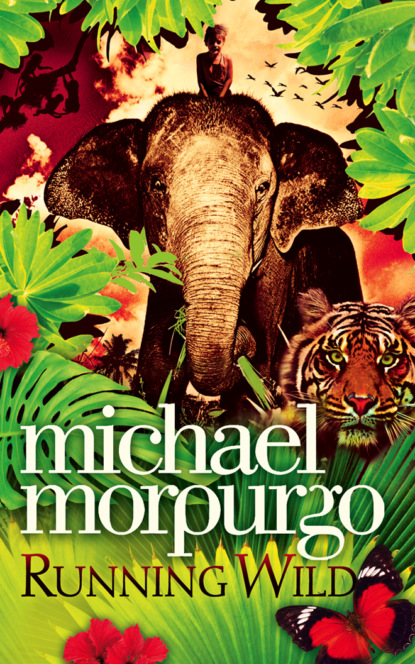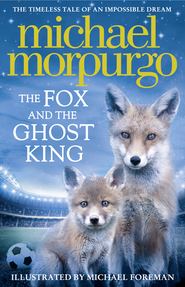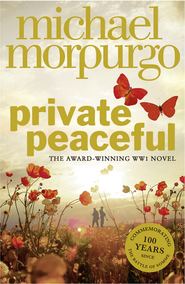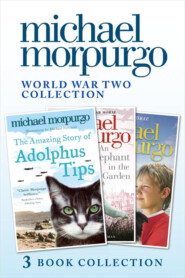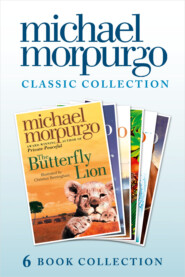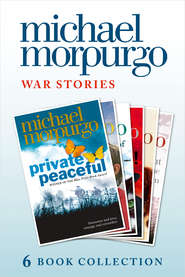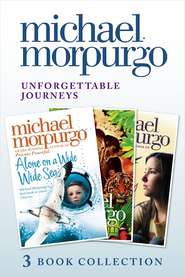По всем вопросам обращайтесь на: info@litportal.ru
(©) 2003-2024.
✖
Running Wild
Настройки чтения
Размер шрифта
Высота строк
Поля
I was back at school a week or so after the funeral. Everyone was kind, too kind. I could tell that no one really wanted to talk to me. Even Charlie and Tonk and Bart, my best friends – they had been all my life – even they were keeping their distance. They didn’t seem to know what to say to me. Nothing was how it had been. Everything and everyone was suddenly awkward. The teachers were all being sugary kind, Mr Mackenzie too, the head teacher – ‘Big Mac’, we all called him. He was sweetness itself, and that wasn’t natural. No one was natural any more. Everyone was pretending. It made me feel alone, as if I didn’t belong there any more.
One morning I decided I just couldn’t stand it any more. I put my hand up in class, and asked if I could go to the toilet. But I didn’t go to the toilet. I just walked out of the school, and went home. Mum wasn’t there and the house was locked. I sat on the doorstep and waited for her. That’s where Big Mac found me when he came looking for me. Even then he wasn’t cross. Mum was called away from her work at the hospital. She was upset, I could see that, and told me how worried everyone had been, but she wasn’t angry with me either. I was almost hoping she would be. It wasn’t the only time I ran away.
One afternoon Mum met me at the school gates in her nurse’s uniform. I usually walked home on my own after school, so I knew something was up. She had news, she said, good news. Grandma had come to stay with us again, and without Grandpa this time. I wasn’t at all happy about that. I was even less happy when Grandma kept telling me at teatime that I should eat up my toast ‘like a good boy’. That was when Mum told me.
“We’ve been thinking, Grandma and me, we’ve been talking it over, Will,” she began. “And we’ve decided that you need more time to settle down, that maybe I sent you back to school too soon, that maybe we’ve rushed back into things too quickly – both of us, I mean. People have been really kind, and really considerate. Mr Mackenzie at school agreed at once, so did the hospital. They all think we should go away for a while. They’ve said that we can take as long as we like, and to come back only when we’re really ready to.”
This all sounded more than fine to me, but when Grandma interrupted, it got even better, because that was when Grandma told me that she’d worked it all out, that we would be coming down to stay on the farm for a month or so. “I’ve told your mum, Will,” she went on. “I said I won’t take no for an answer. You’ll be staying for Christmas, and for as long as you like afterwards, for as long as it takes.” Mum and I exchanged a look and a smile at that, because Grandma never took no for an answer anyway.
“Grandma thinks it’ll be a really good break for both of us, just what we need,” Mum told me. “What do you think, Will?”
“All right,” I said, with a shrug. But I was over the moon.
Every day of our stay had been brilliant, except that is for a surprise visit to the doctor for some sort of injection that Mum said was important. “All kids have it at your age,” she explained. I protested, but I could see I was getting nowhere. In the doctor’s surgery, I looked the other way as the needle went in, but it still hurt like hell. But that apart, and despite Grandma being her usual bossy self, I’d had the best of times.
So it had come as a complete surprise to me when Mum suddenly announced we wouldn’t be staying on with Grandma and Grandpa for Christmas after all, but that the suitcases were already packed and we’d be going home by train that morning. Grandma was going to drive us to the station.
When the train got in, we took a taxi home, which I thought was a bit odd, because Mum had always made out that taxis were a waste of money, and far too expensive. As the taxi stopped outside home, she turned to me and told me to stay where I was, that she wouldn’t be long. She asked the driver if he’d mind waiting a minute or two. She seemed suddenly excited, almost as if she were trying to suppress a giggle.
“Where are you going, Mum?” I asked her, but she was out of the taxi by now and running up the path into the house. She didn’t answer me. I couldn’t make head or tail of what was going on.
It wasn’t long before she was out again carrying a heavy suitcase. “Can you take us back to the station, please?” she asked the driver.
“Take you to the moon, if you’re paying, darling,” he said.
“Not going to the moon, not quite that far,” Mum told him breathlessly, as she climbed back into the taxi.
Then she told me to close my eyes. When I opened them again, she was flourishing two passports at me, a huge smile on her face. “Grandma’s idea,” she said, “and I promise you, Will, it’s the best idea she ever had – actually I think it was Grandpa’s. Anyway, she said that they thought it would be good for us to have Christmas away on our own, just the two of us, somewhere very special, somewhere we can forget … y’know, somewhere thousands of miles away.”
She took a brochure out of her bag, and waved that at me too. “Look, Will! There’s the hotel. There’s the beach. There’s the sea and the sand. And do you know where that is? Indonesia, where my family come from. I’ve never ever been there, and now I’m going, and you’re coming with me. Full of surprises, your grandma. She never asked. Well, she wouldn’t, would she? She just went ahead and booked it. ‘A Christmas present from Grandpa and me,’ she says. ‘You just go and enjoy yourselves.’”
Mum’s whole face was bright with laughter now. “All we needed were those injections – remember, Will? – then just our passports, our summer things, and we’re on our way.”
“What, now? We’re going now?”
“Right now.”
“What about school?”
“No more school, not for the time being. Don’t worry, I’ve asked Mr Mackenzie. He’s fine about it. We’re going to chill, Will.”
It was one of Dad’s old jokes. This was the first time we’d really laughed in a very long time. It turned to tears soon enough. Crying together, I discovered then, was so much better than crying alone. We clung to one another in the back of the taxi, and at last began to let go of our grief.
At the station, the taxi driver helped us out with the suitcases. He wouldn’t accept any payment. “It’s on me,” he said, taking Mum by the hand, and helping her out. “It took me a while to work out who you were. I was in the crowd outside the church at the funeral. I saw you and the lad. I was a soldier once myself. In the Falklands. A while ago, but you don’t forget. Lost my best friend out there. You have a good holiday now, I reckon you deserve it.”
I’d been on a plane a few times before, to Switzerland. But this plane was massive. It took an age lumbering down the runway before it lifted off. There was a moment when I thought it never would. I had my own screen, so that I could choose whatever film I wanted. I watched Shrek 2, again. When it finished, I happened to pick up Mum’s holiday brochure. I opened it. The first picture I saw was of an orang-utan gazing out at me, wide-eyed and thoughtful. There flashed through my mind then a most dreadful image. I must have seen it on television, or maybe from a nature magazine, most likely the National Geographic – we had a pile of them in the bathroom at home. It was a photograph of a terrified young orang-utan clinging pathetically to the top of a charred tree, the forest all around burnt to the ground.
I turned the page quickly, not wanting to be reminded of it any more. That was when I came across the picture of an elephant walking along a beach, and being ridden by a boy no older than I was. I could not contain my excitement. “Mum,” I said, “look at this! They’ve got elephants, and you can ride them!” But Mum was fast asleep, and showing no signs whatever of wanting to wake up.
Some of the people in the brochure looked a lot like Mum, I noticed. She’d never talked to me about Indonesia that much, but I’d always known that was where her family had come from originally. She was Swiss as well, which was why we’d been over there a few times, to see my other grandparents. ‘Liquorice Allsort’, that was what Dad used to call me: “Bit Indonesian, bit Swiss, and a bit Scottish, like me. Best of all worlds, that’s what you are, Will,” he’d say.
I’d always been very proud of having a mother who didn’t look much like my friends’ mothers. Her skin was honey brown, smooth and soft, and she had shining black hair. I would have preferred to look like her, but I’m much more like my father, sort of pinkish, with a thatch of thick fair hair, ‘like ripe corn’, Grandpa called it.
I couldn’t help myself. It was something I’d been doing a lot. I kept trying to picture Dad as he was when I last saw him, but all that came into my head was the photo of him I remembered best, the one on top of the piano with him holding the pike. I knew that a memory of a photo isn’t a real memory at all. I promised myself again that I would think about Dad more often, however much it hurt me. How else could I keep in touch with him? I wanted to see his smile again, to hear how his voice sounded. Remembering him was the only way. It worried me that if I didn’t remember him often, then maybe one day I’d forget him altogether. I needed to remember, but then it troubled me when I did. It was troubling me now, which was why I turned my attention again to the holiday brochure. On every page there seemed to be more elephants. Elephants, I decided, were quite definitely supreme.
And now here I was actually riding one along a beach. I couldn’t believe it. I wished then I had Mum’s mobile phone on me. I longed to ring Grandpa and tell him what I was doing. I said out loud the first words that came into my head: “You’re not going to believe this, Grandpa!” I held my arms high, lifted my face towards the sun, and whooped with joy. The mahout turned round and laughed aloud with me.
I think I’ve loved elephants ever since I was little, probably ever since my first Babar book. Best of all I loved the story of ‘The Elephant’s Child’, whose nose had been tugged and tugged, until it was stretched into a proper trunk by a crocodile, down by ‘the great grey-green greasy Limpopo River, all set about with fever-trees’. Grandpa had read it to me so often at bedtimes that I knew some of it by heart. Ever since then I’ve always loved any natural history programme, just so long as there were elephants in it.
And now I was in one, on one, and it was my own programme! I whooped again, punching the air. High above me, probably at about 35,000 feet, I thought, flew a silver dart of a plane, its vapour trail long and straight. “I was up there,” I told the mahout. But he didn’t seem to be listening. He was looking out to sea. He seemed distracted by something. So I told Oona instead. “I was up there with Mum,” I told her, “in a plane just like that one. And there was an elephant just like you, in the brochure. Maybe it was you.”
I remembered how, up in the aeroplane, when Mum woke she leaned over me, brushing my hair away from my eyes. “I should have cut your hair at Grandma’s,” she said. “I’ll do it when we get to the hotel. It’s too long. You look like a right ragamuffin.”
“Mum,” I told her, fixing her with my most determined look. “When we get there, I’m not going to waste time having a stupid haircut, am I? You know what I’m going to do? I’m going to go for a ride on an elephant.” I showed her the brochure. “Look at that!”
“Are they safe?”
“Course they are, Mum. Can I?”
“We’ll see,” she said. “I expect it’ll be a bit expensive. We’ll have to watch our pennies, you know.”
The hotel was right on the beach, and just as beautiful as it had looked in the brochure. And there was an elephant too, we were told, that sometimes gave hour-long rides all the way down the beach and back. Every day I looked out for this elephant, but much to my disappointment it was never there. There were compensations enough though. We spent an entire week messing around on the beach, swimming and snorkelling. It was a week filled with endless sun and fun, all in all the very best kind of forgetting. Then on Christmas Day, Mum told me I wasn’t getting a Christmas present this year, I was going to have an elephant ride instead. She’d arranged the whole thing for the next day, for Boxing Day.
So that’s how come, on Boxing Day, I found myself sitting there high up on an elephant, on a kind of cushioned throne – Mum said she thought it was called a howdah, or something that sounded like it anyway. There was a wooden rail all round to hold on to. But when the elephant set off, the ride was so smooth that I found I didn’t need to hold on at all. I rode along the beach on my throne, looking down on the world around me. I felt like a king up there, or an emperor maybe, or a sultan, except that Mum did rather spoil the illusion, by trotting alongside taking photos of me on her phone to send home to Grandma and Grandpa. I acted up for the camera, waving at it regally. “Hi, Grandpa, hi, Grandma. King Will here. What d’you think of my new tractor then, Grandpa?” I shouted all sorts of nonsense. This was better than I had ever imagined. I felt on top of the world. “Happy up there, Your Majesty?” Mum said, beaming up at me.
“S’all right, I suppose,” I told her.
“Mind you keep your hat on, Will, and your shirt. Don’t want you getting sunstroke or sunburn, do we?” She went on, and on and on. “And you’ve got the sun cream, and that bottle of water I gave you, haven’t you? It’s hot, and it’ll get hotter.”
“Yes, Mum. I’ll be all right, Mum.” I was trying to make light of my irritation.
“I’ll be fine. Honest, Mum. See you when I get back.”
“Don’t fall off,” she called after me. “Hang on tight. It’s a long way down. You will be all right up there, won’t you?”
I didn’t like her fussing over me, and especially not in front of the mahout. I waved her goodbye, waving her away at the same time. “Don’t worry, Mum,” I told her. “You go and have a swim. It’s brill, Mum, just brill.” And it was true. I’d never had a ride as brilliant as this, nor as easy as this, nor as high as this. I remembered the donkey on the beach at Weston-super-Mare, with its jerky little steps; and Minky, the Haflinger horse I’d ridden once in Guarda in Switzerland, who used to break into a sudden trot whenever she felt like it, who bumped me up and down in the saddle so hard I couldn’t sit down afterwards. This elephant was slow, gentle, dignified. Whatever this elephant had for shock absorbers were fantastic. All I had to do was move with her, sway with her rhythm, and that was as easy as pie. It felt almost as if I was afloat. Riding an elephant seemed as natural to me as breathing.
I’d been so wrapped up in my own thoughts, so enthralled by the elephant, and by everything around me, that only now did I think of Mum. I swivelled around in my howdah to look for her. I could see there were dozens of swimmers in the sea just below the hotel. I tried to spot her red bikini, or the light blue sarong that Dad had given her, but we’d gone a long way away from them by now, and I couldn’t pick her out from among the others. The sea was so still now, it seemed almost unreal. It seemed to me as if it was breathing in, then holding its breath, waiting for something to happen, something fearful. It made me feel suddenly anxious too, which was why I kept turning round now, looking for Mum. I still couldn’t see her. I began to feel myself being gripped by a rising panic. I didn’t know why, but all I wanted to do was to go back. I wanted to be with her. I had to be sure she was safe.
That was the moment Oona stopped, without any warning at all. She was looking out to sea, her whole body tensed. She was breathing hard, short sharp breaths. Then she lifted her trunk and began trumpeting at the sea, tossing her head as if there was something out there, something that terrified her. The mahout was trying to calm her, but she wasn’t paying him any attention.
I looked out to sea then, and noticed that the horizon had changed. It looked as if a white line had been drawn across it, separating sea from sky. As I watched I could see that this line was moving ever closer towards us, that the sea was being sucked away, leaving hundreds of fish floundering on the sand. Oona swung round, and before the mahout could stop her, she was running towards the trees. In those first few hurried strides I very nearly fell off. I managed to stay on, only by clinging on tight with both hands to the rail in front of me. I held on for dear life, as Oona stampeded up the beach, and into the shadows of the jungle.
“No leaves, Oona, I can’t eat leaves” (#ulink_f8e22c2e-e47e-5345-998b-bf38ccd10843)
was being rocked so violently from side to side up in my howdah that it was all I could do to avoid being thrown out. I learned fast that I had to keep my head down, that whenever I looked up, there’d be some overhanging branch just ahead of me, waiting to slash and whip and claw at me, or even to knock me off altogether. So I flattened myself face down into the cushion, closed my eyes, and with all my strength, just hung on, riding the pitch and toss as the elephant blundered through the trees, trumpeting in her terror.
It was the trumpeting I could not stand. It was so loud, so excruciatingly shrill, that it filled my whole head, and the whole forest around me too. I longed to put my hands over my ears, but I could not let go of the rail. The elephant’s terror became my terror, and I found myself screaming into the cushion, then biting deep into it, because it was the only way to silence my screams. I’d been to the funfair with Dad, done the Big Dipper and the Waltzer, but that had all been make-believe terror, terror I could laugh at, terror I had to laugh at because Dad was, because everyone was, even though I was frightened out of my wits. But this, this was the real thing, this was life or death – I knew it because Oona was trumpeting it. I had no idea then what she was running from, only that whatever it was must be close behind us and coming after us, and would kill us if it caught up with us.





